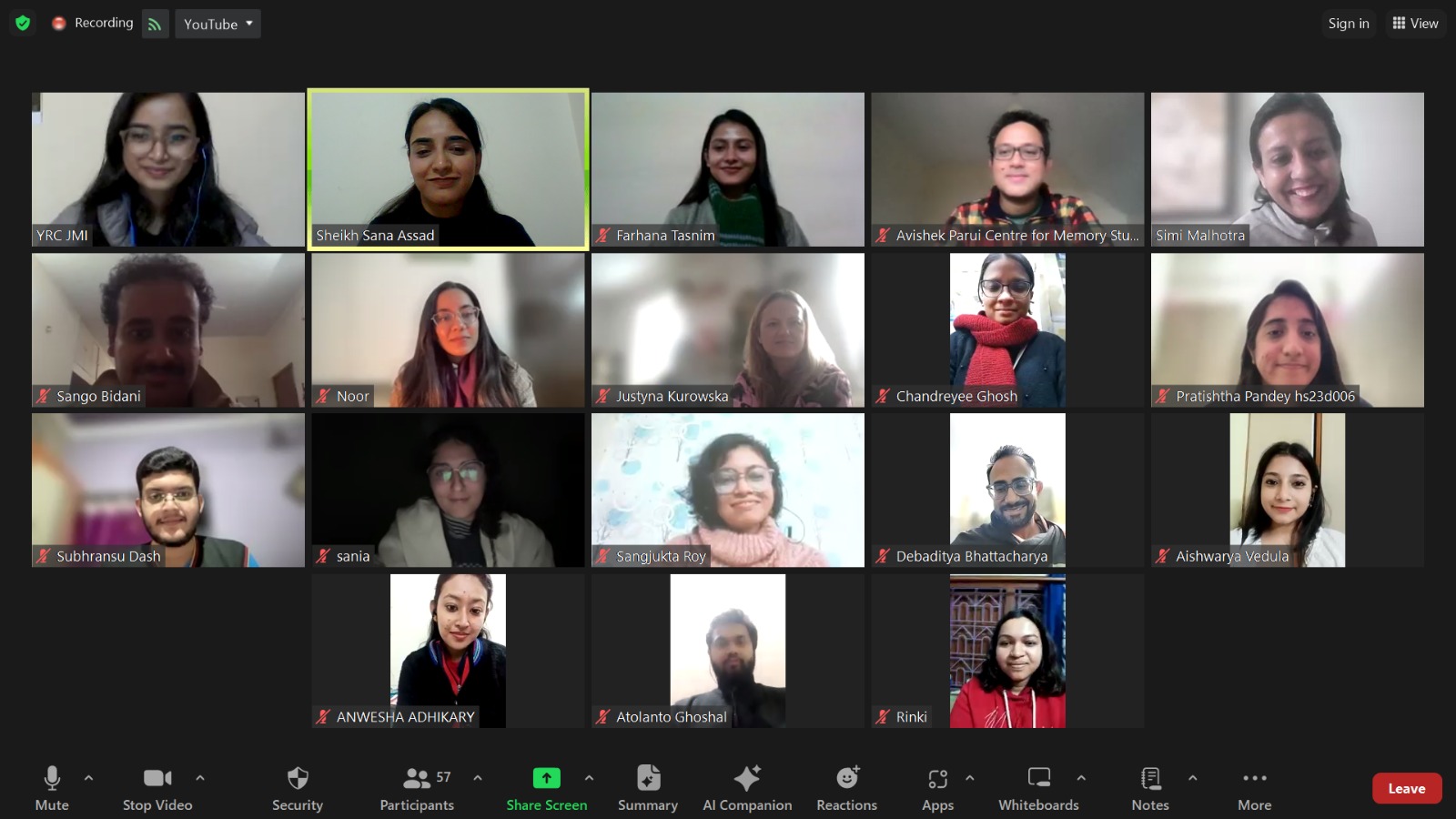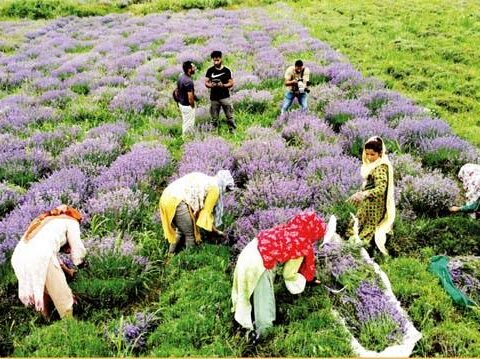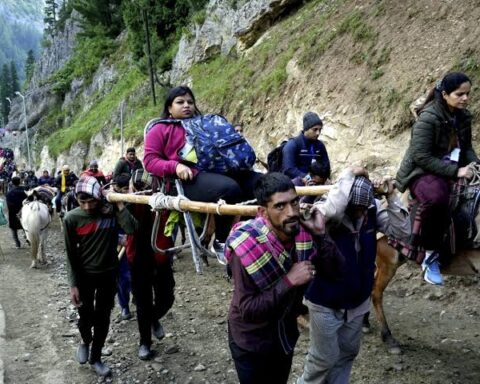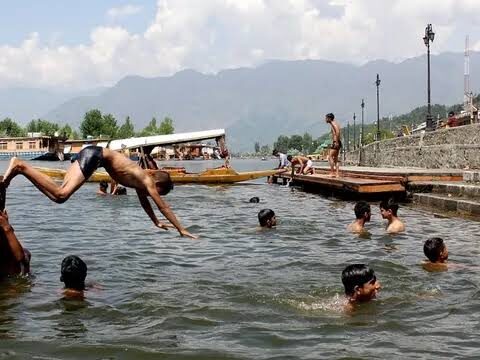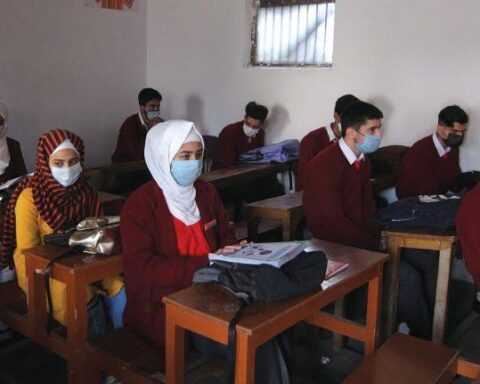The Department of English, Jamia Millia Islamia (JMI) organized it’s Third Young Researchers’ Conference titled ‘Trauma and Memory Studies: Responses from the Global South’ from 19th – 21st January, 2024 on Zoom platform.
Day One commenced with Prof. Simi Malhotra, Head, Department of English, JMI and the organizer of the conference welcoming everyone on behalf of the robust English department. Underscoring the relevance of the themes of the conference she shared how the CFP received an overwhelming response. As a tangible outcome of the conference, she also expressed the need to publish a volume of essays from the conference proceedings with voices in the field of Trauma and Memory Studies from the Global South.
This was followed by a brief introduction of the theme of the conference by Sheikh Sana Assad, co-organizer and a PhD scholar at the Department of English, JMI.
Session one was the Inaugural Keynote Address by Prof. Roger Luckhurst, Geoffrey Tillotson Chair of Nineteenth Century Studies, Birkbeck, University of London. In his talk titled “Questions for the Floor: Delinking Coloniality and Trauma”, Prof. Luckhurst put some thought-provoking questions in front of the audience. He actively engaged with questions from the participants, providing thorough and insightful responses to their inquiries. This session was chaired by Farhana Tasnim and moderated by Somya Charan Pahadi, co-organizers and PhD scholars at the Department of English.
It was followed by session two- the first presenter session titled “Anthropogenic Catastrophes: Spectres of Trauma/Memory”. This session was chaired by Suman Baghchandani and moderated by Asmita Pandey, PhD scholars at the Department of English, JMI. The presenters in this session were Revathy Krishnan, Meghal Karki and Dr Justyna Kurowska.
Thereafter, session three- the second paper presenter session titled “Displaced Voices: Ritual Performances and Memorialization in Exile”, was chaired by Grace Mariam Raju, PhD scholar at the Department of English, JMI. The session had Pratishtha Pandey, Lakshmi P and Saumya Tripathy as presenters. The audience engaged in a vibrant Q&A session.
Session four was the second Special Keynote session delivered by Prof. Stef Craps, Professor of English Literature, Ghent University, Belgium and Director, Cultural Memory Studies Initiative. Chaired by Somya Charan Pahadi, this session was titled, “From the Shadows to the Spotlight: Global South Perspectives on Trauma and Memory”. In his lecture, Prof. Stef Craps talked about his book titled “Postcolonial Witnessing: Trauma Out of Bounds” and expanded on it with recent developments intertwining strands of Trauma and Memory Studies. He also invoked Jamaican American poet, Claudia Rankine and Francophone Afro-Caribbean psychiatrist Franz Fanon to substantiate his discussion. This session was moderated by Sheikh Sana Assad. The lecture was followed by questions and comments by the attendees.
The second day began with the fifth session of the conference titled “Transgenerational Trajectories: Cataclysmic Hauntings and Mnemonic Complexity in War Narratives”. This session was chaired by Jubi C John and moderated by Mohd. Aqib. The paper presenters were Huzaifa Pandit, Sheikh Sana Assad and Sanjukta Roy.
This was followed by the third Keynote Address by Prof. Michela Borzaga. The session was chaired by Sheikh Sana Assad and moderated by Farhana Tasnim. In her insightful talk titled “Towards Afropolitan Futures, Re-reading Trauma and Repairing Time in Two Apartheid ‘World Novels” discussed in detail about the aspect of time and emphasized on the aspect of ‘present time’. She also discussed how memory is a form of temporal displacement. A brief question and answer session followed.
This was followed by the seventh session of the conference titled “Frames in Flux: Whirling Memories and Cinematic Tales of Trauma”. This session was chaired by Zahra Rizvi and was moderated by Steven S George, both PhD scholars at the Department of English, JMI. The paper presenters were Natasha Negi, Sania Muzamil and Farsanah Moosa Kappil respectively.
The final session of the day was the fourth Special Keynote Address by Prof. Sam Durrant. This session was chaired by Farhana Tasnim and moderated by Sheikh Sana Assad. In his talk titled “Whose Memory is it Anyway? Animism, Literature and Disenclosure of Memory and Trauma Studies”, Prof. Durrant talked about the need to understand the significance of disenclosure of the field of trauma studies. In this context he lists four subjectivities. He also discussed the concept of New Animism in the context of disenclosure. The session was followed by a brief question and answer session.
Day Three of the Third Young Researcher’s Conference titled “Trauma and Memory Studies: Responses from the Global South” began with Session 9 named “Spatiality and Suffering: Testimonial Imprints from Urbanscapes.” This session was chaired by Dr Anab Naiyer an independent researcher and moderated by Vasundhara Gautam, an assistant professor at Indraprastha College for Women (University of Delhi). The presenters in this session were Valentina Barnabei, Aditi Bhardwaj and Rinki Debnath.
The tenth session was titled “Disenfranchised Discourses: Resurgence of Feminist Accounts”. This was chaired by Gulbahar Shah, a PhD scholar at the Department of English, JMI; and was moderated by Noorussabah. The presenters for this session were Rohit Prasad and Jerin Jacob.
The eleventh session was a Special Keynote session delivered by Prof. Nadia Butt, Professor of Global Anglophone Literatures and Cultures at the University of Frankfurt. It was chaired by Dr Sango Bidani, a guest faculty at the Department of English, JMI and was moderated by Farhana Tasnim, a PhD Scholar at the Department of English, JMI. Prof. Butt delivered the talk on “Transgenerational Trauma: The Entanglement of Family Memories in 21st Century Diasporic Women’s Literature”. Prof. Butt based her arguments on the explosion of trauma theory, the engagement of literature with the concept of trauma and the various ways and processes of how diasporic women in particular deal with traumatic memories.
The thirteenth session was the final session of the conference. It was a Special keynote address by Prof. Avishek Parui, Associate Professor in English at IIT Madras. His talk was titled “Remembering, Forgetting, Forgiving: Perspectives from Trauma and Memory Studies”. Prof Parui dealt with the philosophical anthropology of Paul Ricoeur, the neuroscience of forgiving and entanglement of memory, trauma and unforgiving in fiction with special reference to Manto.
The conference came to an end with the closing address delivered by Farhana Tasnim, PhD Scholar at the Department of English, JMI and a co-organizer of the conference. This was followed by comments from Prof. Simi Malhotra, Head, Department of English. Besides her words of encouragement and appreciation for the participants of the conference she also expressed her immense gratitude toward the audience who had managed to join from across time zones. The official Vote of Thanks was delivered by Sheikh Sana Assad, PhD Scholar at the Department of English, JMI and a co-organizer of the conference.
To ensure a wide range of viewership and participation, the entire conference was also live streamed on YouTube.
Author Profile
-
JK News Live is a platform where you find comprehensive coverage and up-to-the-minute news, feature stories and videos across multiple platform.
Website: www.jknewslive.com
Email: [email protected]
Latest entries
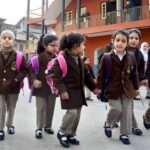 KashmirJuly 26, 2024Summer vacation again in schools not possible as of now:- DIV Com
KashmirJuly 26, 2024Summer vacation again in schools not possible as of now:- DIV Com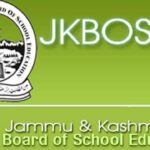 KashmirJuly 26, 2024JKBOSE: Datesheet for Class 10th and 12th Check Here
KashmirJuly 26, 2024JKBOSE: Datesheet for Class 10th and 12th Check Here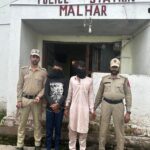 KashmirJuly 25, 2024Kathua Attack Case: Two OGWs Arrested For Supporting Militancy: Police
KashmirJuly 25, 2024Kathua Attack Case: Two OGWs Arrested For Supporting Militancy: Police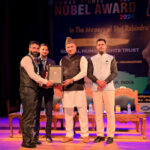 KashmirJuly 24, 2024Shahid Jeelani facilitated by Global Human Rights Trust
KashmirJuly 24, 2024Shahid Jeelani facilitated by Global Human Rights Trust

JK News Live is a platform where you find comprehensive coverage and up-to-the-minute news, feature stories and videos across multiple platform.
Website: www.jknewslive.com
Email: [email protected]

